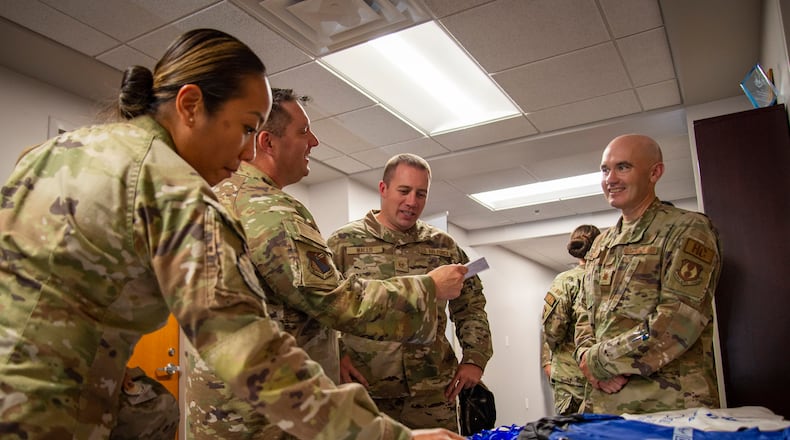Callers who call after hours or who don’t reach someone right away should get a return call in at least two business days, Noelle Diller, program coordinator for Wright-Patt Connect, said in a recent interview.
Those looking for resources after hours can also visit military-connect.org/wp. A QR code at that site can jumpstart the process.
“I call it a resource line, because that’s essentially what it is,” said Diller, a military spouse who has worked as a Springfield-area firefighter. “It’s a line with resources for the service members.”
The resource is meant for active-duty, Air Reserve and National Guard members looking for help with family and social support, mental health and substance abuse problems, military benefits, financial issues and higher education questions.
“The possibilities are endless,” Diller said. “Really, each call is designed for that individual.”
Still considered a new program, Wright-Patterson is one of four bases offering the line.
Having the ability to call and talk to a person who can point you in the right direction is especially helpful when people are under pressure, Diller said.
Those answering or returning calls will be retired military members familiar with military life. “It’s not, they call us and we say, ‘Hey, that’s great. Dial this number and hopefully somebody helps you.’ That’s not how this works,” Diller said.
“Follow-through” is part of the deal, she added. “We will reach back out. We continually reach out through that whole process and make sure they’re being taken care of.”
Those taking calls should know where to direct callers, if necessary, and they know what questions to ask.
“What people think they want is not necessarily what they need,” said Dr. Thomas Tirey, director of Wright-Patterson’s Integrated Resilience Office.
“It doesn’t mean everybody has huge needs,” Diller said. “But everybody has some sort of need.”
The effort to bring the line to Wright-Patterson started in 2021, Tirey said. Those exploring the matter found Arizona Connect, and the service has been adapted to military callers from Wright-Patterson.
The service is part of a multi-year Department-of-Defense grant to the Arizona State University College of Health Solutions and the Arizona Coalition for Military Families.
Assistance is confidential, unless and until a caller is seen to be a threat to himself or someone else, Tirey and Diller said.
About the Author


